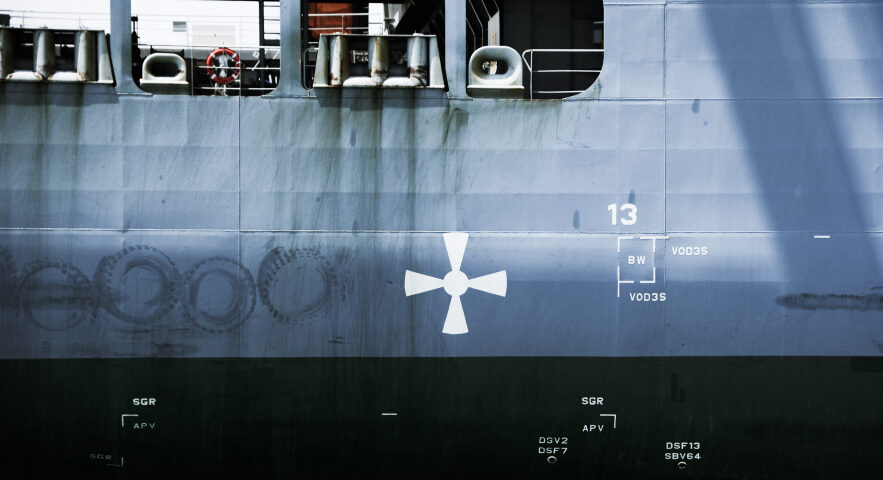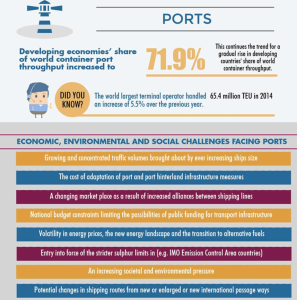The Review of Maritime Transport 2015 has been released by UNCTAD sheds light to developments in shipping and ports around the globe within 2015.
Around 80 per cent of the volume of international trade in goods is carried by sea, and the percentage is even higher for most developing countries. The Review of Maritime Transport provides an analysis of structural and cyclical changes affecting seaborne trade, ports and shipping, as well as an extensive collection of statistical information.
Chapter 4 is devoted to developments in ports within 2015. Developing economies’ share of world container port throughput increased marginally to approximately 71.9 per cent. This continues the trend of a gradual rise in developing countries’ share of world container throughput. The economic, environmental and social challenges facing ports include growing and concentrated traffic volumes brought about by ever-increasing ship size; the cost of adaptation of port and port hinterland infrastructure measures; a changing marketplace as a result of increased alliances between shipping lines; national budget constraints limiting the possibilities of public funding for transport infrastructure; volatility in energy prices, the new energy landscape and the transition to alternative fuels; the entry into force of stricter sulphur limits; increasing societal and environmental pressure; and potential changes in shipping routes from new or enlarged international passage ways.
The UNCTAD flagship publication, published annually since 1968 might be freely downloaded at Review of Maritime Transport 2015 webpage













